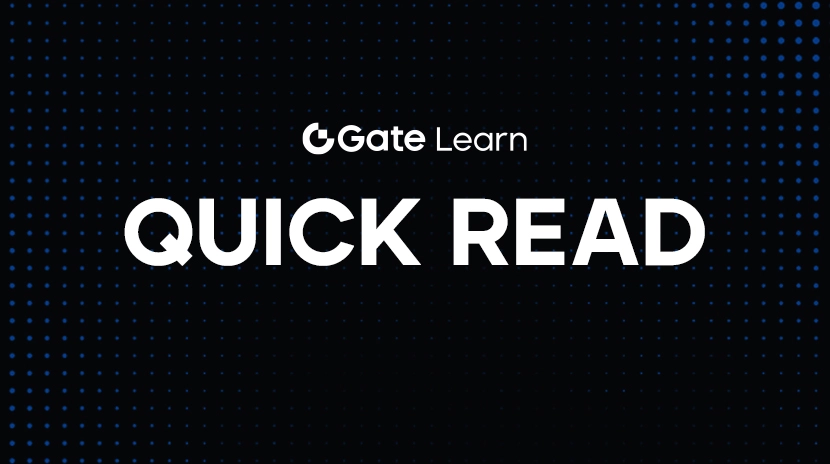What does IOC mean? A Closer Look at Immediate Or Cancel Orders and Their Use Cases
What Is IOC?
In both traditional financial markets and cryptocurrency trading, an IOC (Immediate Or Cancel) order is a widely used order type. Its name means that the order must be executed immediately, or any unfilled portion is canceled. When a trader submits an IOC order, the system instantly attempts to match it at the best available market price. If the order can’t be fully executed right away, the system automatically cancels the unfilled portion—it doesn’t leave the remainder on the order book to fill later.
The defining characteristic of IOC orders is speed and efficiency. By using IOC orders, investors can avoid having their orders sit unfilled for long periods, which reduces exposure to market volatility and uncertainty.
How IOC Orders Work
IOC orders are processed as follows:
Order Placement
The trader specifies the quantity and target price, and selects the IOC order type.Order Matching
The exchange’s matching engine checks the market to see if there are buy or sell orders that match the IOC order.Partial Fill or Immediate Cancel
- If there’s enough market liquidity, the order may be fully executed.
- If only a portion of the order can be filled, the remainder is canceled immediately.
Unlike GTC (Good Till Cancelled) orders, which stay on the market until completely filled or manually canceled, IOC orders are either filled instantly or canceled right away.
Use Cases for IOC Orders
IOC orders are valuable in a range of trading scenarios, especially when efficiency and risk control matter most:
Highly Volatile Markets
In fast-moving markets like crypto or forex, IOC orders help traders lock in the current best price immediately, minimizing the risk of slippage due to delays.Large-Volume Trades
Institutions or large traders executing sizable orders may want to avoid showing their full intent to the market. IOC lets them execute whatever can be filled instantly, while canceling the rest to avoid price exposure or signaling to other traders.Short-Term Trading
For day traders or high-frequency traders who rely on speed, IOC orders reduce waiting times and provide greater agility.
IOC Compared to Other Order Types
To fully understand IOC, it’s helpful to compare it with a few standard order types:
GTC (Good Till Cancelled)
These orders remain active in the market until they’re completely filled or canceled by the trader, the opposite of IOC’s focus on immediacy.FOK (Fill Or Kill)
While similar to IOC, FOK mandates that the entire order be executed at once or not at all. If the order can’t be filled in its entirety, it’s canceled—IOC, however, allows for partial fills.Market Order
This order type is filled instantly at the best available market price but doesn’t offer control over partial execution. Large market orders are especially prone to slippage compared to IOC orders.
These comparisons show that IOC strikes a flexible balance between the speed of market orders and the all-or-nothing approach of FOK.
Benefits of IOC Orders
Immediate Execution Minimizes Risk
IOC helps traders avoid risks tied to price changes while waiting for their orders to be filled.Suited to High-Frequency and Short-Term Strategies
The instant nature of IOC is ideal for trading tactics that demand quick market entry and exit.Protects Market Intent
Large investors use IOC to avoid leaving big orders exposed on the order book, which can lower the risk of market frontrunning or adverse price movements.Greater Flexibility
Unlike the all-or-nothing rule of FOK, IOC permits partial fills, increasing the potential for successful trades in dynamic markets.
Risks and Challenges of IOC Orders
Partial Fill Risk
A trader aiming to buy 1,000 tokens may only get 200 filled, while the rest gets canceled, possibly falling short of their intended position.Unfavorable Prices in High Volatility
While IOC provides speed, thin liquidity can mean fills happen at less favorable prices.Reliance on Market Liquidity
In illiquid or lower-volume assets, IOC orders may see frequent cancellations due to lack of counterparties.Unsuitable for Long-Term Holds
Investors with long-term, buy-and-hold strategies may find IOC orders less appropriate due to their short-term focus.
How to Use IOC Orders Effectively
To maximize the effectiveness of IOC orders:
Define Your Trading Objective: IOC is ideal for short-term plays and grabbing brief market opportunities. For long-term investing, consider GTC or limit orders.
Trade in Liquid Markets: Avoid using IOC on illiquid or low-volume assets to prevent frequent order cancellations.
Integrate with Risk Management: Combine IOC with take-profit or stop-loss orders to ensure swift execution within a desired price range.
Start Small: Test with small order sizes before placing large trades to gauge market behavior and refine strategy.
Want more insights on Web3 and crypto? Click to register: https://www.gate.com/
Summary
IOC (Immediate Or Cancel) orders offer rapid execution and reduced waiting risk—features that appeal to short-term traders, large-volume investors, and those active in highly volatile markets. IOC combines the speed of a market order with the precision of a limit order, creating high flexibility. However, traders must be aware of the risks tied to partial fills and liquidity. Unlocking the full value of IOC requires understanding its characteristics and integrating it with your own trading strategy.
Related Articles

Pi Coin Transaction Guide: How to Transfer to Gate.io

What is N2: An AI-Driven Layer 2 Solution

How to Sell Pi Coin: A Beginner's Guide

Grok AI, GrokCoin & Grok: the Hype and Reality

Flare Crypto Explained: What Is Flare Network and Why It Matters in 2025
